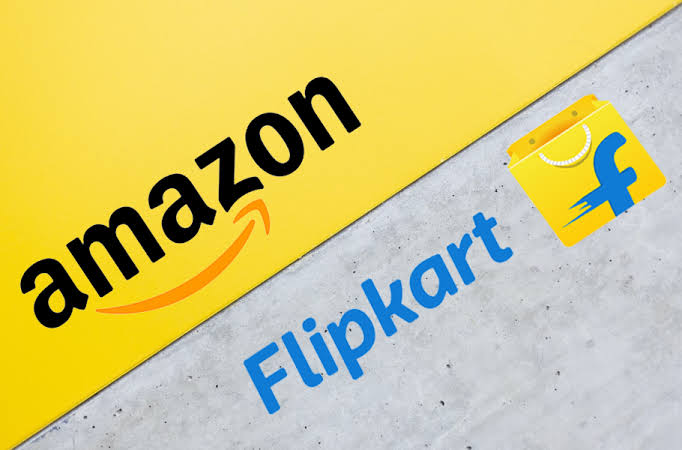Three big topics are dominating the headlines in today's fast-paced digital landscape: Microsoft's recent employment layoffs, Amazon and Flipkart's violations of Indian antitrust laws, and Corning's groundbreaking advancements in glass technology for folding devices and smartwatches. These developments show how the technology industry is changing due to innovation and the need to adjust to shifting market conditions. They also emphasize the complexities and difficulties that global tech companies face. We will go deeply into these tales in this piece, offering a thorough examination of every problem and its wider ramifications for the sector.

Amazon and Flipkart Violated Indian Antitrust Laws
Historical Context of the Antitrust Probe
Following concerns from small merchants, the Competition Commission of India (CCI) opened an inquiry into Flipkart, which is owned by Walmart and Amazon, in 2020. The main accusation against the e-commerce behemoths was that they were unfairly gaining a competitive edge by supporting certain suppliers through exclusive business agreements. It was alleged that by elevating some products above others in search results, this approach harmed smaller vendors and discouraged competition, creating a monopolistic atmosphere.
In August 2024, following a thorough inquiry that lasted several years, the CCI released its conclusions. Two distinct papers, one dated August 9, 2024 and consisting of 1,027 pages about Amazon and 1,696 pages about Flipkart, were the result of the investigation. These studies validated the concerns that both businesses had violated antitrust laws in India by establishing ecosystems that benefited specific merchants, so driving away less powerful rivals.
Important Results from the Reports
The CCI's conclusions state that both Amazon and Flipkart abused their platforms to favor a certain group of sellers unfairly who they had close commercial relationships with. Due to their increased visibility on the platforms—often ranking higher in search results—these merchants were able to outbid more independent and smaller sellers.
Several actions that were judged to be anti-competitive were brought to light by the investigation:
- **Exclusive Arrangements:** It has been alleged that Amazon and Flipkart have formed exclusive alliances with specific vendors, giving them priority access to product placement and visibility.
- **Search Algorithm Manipulation:** It was discovered that both corporations had manipulated their algorithms to give preference to products from their chosen vendors, which hindered the ranking of smaller businesses in search results.
- **In-depth Savings:** The aggressive discounting tactics used by these e-commerce sites were another significant concern brought up. Smaller merchants lost market share and revenue as a result of being unable to compete by offering products at drastically discounted rates.
How Small Retailers and the Whole Market Are Affected
The CCI's conclusions have clarified the mounting apprehensions of smaller Indian retailers, who contend that unfair competition has resulted from Amazon and Flipkart's dominance. Many small businesses have struggled in recent years to compete in an environment where e-commerce giants control visibility, set prices, and offer steep discounts that smaller retailers are unable to match.
The growth of e-commerce in India has presented both opportunities and challenges for small businesses. The internet has made it possible to access a larger customer base, but it has also created significant obstacles to business due to the practices of big platforms.
Possible Repercussions for Flipkart and Amazon
Now that the CCI's reports are out to the public, Flipkart and Amazon may be subject to legal and regulatory repercussions. The two businesses might face severe penalties and fines, and there's a growing call for further control of India's e-commerce industry. These changes may also open the door for new regulations meant to equalize the playing field for smaller companies.
These conclusions may limit the growth potential of both corporations as they look to grow in India, particularly if the Indian government tightens its enforcement of antitrust laws. The investigation's conclusion might also establish a precedent for other sectors where comparable worries about big e-commerce corporations acting in an anti-competitive manner exist.
Microsoft to Eliminate 650 Jobs at the Xbox Division
Background on the Layoffs at Microsoft
The computer giant's third round of layoffs this year, which affects 650 employees in its Xbox division, is a reflection of bigger issues facing the industry. In January 2024, after purchasing Activision Blizzard for $69 billion, the firm let go of 1,900 workers at both Activision Blizzard and Xbox. Following the epidemic, the gaming industry experienced a surge in involvement. However, subsequent to this, expenditure has slowed down, leading to project cancellations, studio closures, and layoffs at numerous large organizations.

Causes of the Layoffs
The following important variables have influenced Microsoft's decision to cut staff in the gaming division:
1. **Market Slowdown:** Player engagement rates have since recovered to pre-pandemic levels, following the spike in gaming activity during the COVID-19 pandemic. Gaming enterprises have seen a knock-on effect from this recession, including lower revenue and cost-cutting measures.
2. **Energy-focused**: Ever since acquiring Activision Blizzard, Microsoft has been searching for methods to reduce overhead and get rid of unnecessary personnel. The company is continuing to incorporate Activision Blizzard into its portfolio while streamlining the operations of its gaming segment, which includes the layoffs.
3. **Changes in the Gaming Industry**: A lot of companies have chosen to cut back operations and concentrate on core initiatives, which has resulted in substantial changes to the gaming industry as a whole. This has resulted in the shutdown of several companies and projects for Microsoft, such as the gaming firm Arkane Austin, which produced games like "Redfall."
The Effect on the Gaming Division of Microsoft
Microsoft has guaranteed its stakeholders and staff that no significant gaming initiatives, products, or experiences will be canceled as part of these changes, even in spite of the layoffs. In a memo to employees, Xbox CEO Phil Spencer underlined that the layoffs were required in order to reallocate resources to the organization's long-term strategic objectives.
Popular Xbox games and services will still be supported, which is good news for gamers, but the job losses may still have an effect on the company's future capacity to create cutting-edge items. Microsoft will need to find a balance between cost-cutting initiatives and preserving its position as the market leader as it continues to navigate the difficulties presented by the changing gaming industry.
Overarching Industry Patterns
The move by Microsoft to reduce staff in its gaming division is indicative of larger market developments. A number of significant gaming firms have announced layoffs and project cancellations in recent months as they struggle with the post-pandemic industry. These companies include Ubisoft and Electronic Arts. Even though the gaming industry is still very profitable, businesses are having to adjust to shifting customer preferences and more constrained budgets.
Concerns over the future of creativity and innovation in the gaming business have been raised by the widespread layoffs and studio closures. There's a chance that businesses will become more cautious in their approach to game creation as they put cost-cutting ahead of new initiatives, which could stifle innovation and creativity.
Corning Is Creating New Glass Technologies for Devices That Fold
Corning's Inclusion in India and Innovation-focused Approach
For more than 60 years, Corning, an American corporation well-known for its Gorilla Glass, which is used in smartphones and other gadgets, has been a major force in India's tech industry. The company manufactures a variety of goods, including data center and optical fiber devices as well as mobile protection solutions. To adapt to the changing demands of the tech sector, Corning has refocused its efforts in recent years on creating innovative glass technologies.
Managing Director of Corning India Sudhir Pillai recently discussed the company's efforts to innovate and develop innovative glass solutions for wearables and folding phones. But as of right now, the company is focusing on increasing its capacity for local production; these products are not yet produced in India.
Gorilla Glass's Development
Gorilla Glass from Corning is now widely recognized for its strength and protection for smartphones. Some of the top smartphone manufacturers in the world have been using Gorilla Glass since its launch in 2007 to shield their products against scuffs and cracks. Corning has been refining glass technology over the years to increase its durability while preserving its transparency and touch sensitivity.
Corning's work on foldable glass, which is made to resist the rigors of folding and unfolding without sacrificing on durability, has been one of the most significant advancements in recent years. The future of smartphones is anticipated to be significantly impacted by this revolutionary glass technology as more manufacturers release foldable handsets.
Foldable Glass and Smartwatches: The Future
The increasing demand for foldable smartphones and other gadgets requiring flexible displays is the reason behind Corning's investment in foldable glass technology. The arrival of foldable phones by firms such as Samsung, Huawei, and Motorola has increased demand for robust and flexible glass solutions. Glass that can flex and bend without breaking is what Corning is aiming to create, which will make it perfect for use in foldable electronics.

Not only is Corning investigating new glass technologies for smartwatches, but also foldable phones. Glass that is both robust and touch-responsive is needed as wearables becoming increasingly sophisticated and feature-rich. It is anticipated that Corning's innovative glass technologies would meet these demands by offering wearable gadgets more performance and protection.
Regional Manufacturing and Prospects
In addition to making major advancements in glass technology, Corning is concentrating on growing its market share in India. In a new plant in Tamil Nadu, Corning and Optiemus established a joint venture last year to produce protective front glass for smartphones. Production at this plant is anticipated to start in the second half of 2025, which will be a major accomplishment for Corning's local manufacturing capacity.
Corning is positioned to benefit from the rising demand for wearables and foldable electronics as long as it keeps innovating and creating new glass technologies. Corning is poised to play a significant role in influencing the direction of technology because to its strong presence in India and dedication to innovation.
Final Thoughts
The tech industry is always changing, and the top headlines of today show the chances and difficulties that big firms in the sector are facing. The necessity of fair competition is highlighted by Amazon and Flipkart's antitrust difficulties in India, while Microsoft's job losses are indicative of larger trends in the gaming business. In addition, Corning's advancements in glass technology suggest that wearables and smartphones could have interesting futures. These tales serve as a constant reminder of how dynamic and ever-evolving the technology landscape is.












